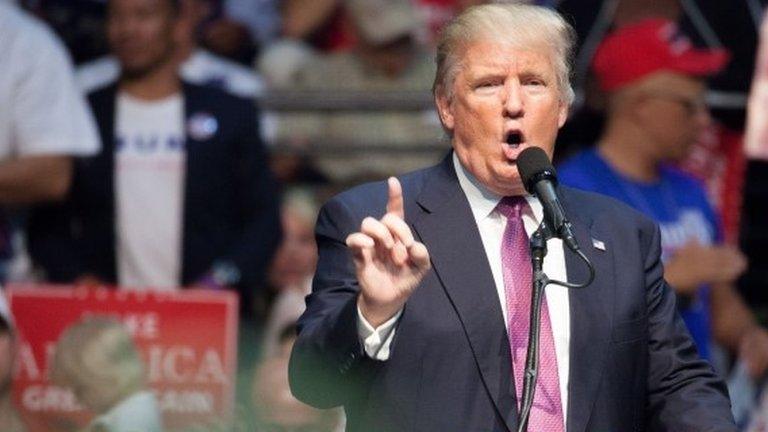Germans chide US envoy Grenell for call to 'empower' right
- Published
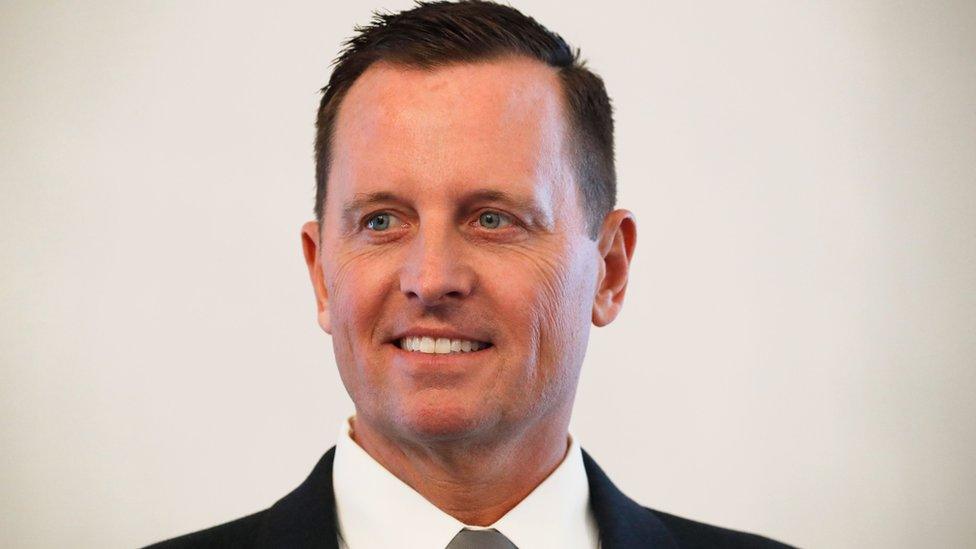
Richard Grenell made the remarks in an interview with right-wing Breitbart News
German politicians have hit back at the new US ambassador for having said he wanted to "empower" Europe's right.
Richard Grenell, appointed by President Donald Trump last year, was speaking to right-wing Breitbart News. Diplomats usually avoid political point-scoring.
A German foreign ministry spokesman said "we have asked the US side for clarification".
Lars Klingbeil, a top Social Democrat (SPD) official, accused the ambassador of "interfering" in German affairs.
Mr Klingbeil told Mr Grenell off in an angry tweet addressed to him personally.
Allow X content?
This article contains content provided by X. We ask for your permission before anything is loaded, as they may be using cookies and other technologies. You may want to read X’s cookie policy, external and privacy policy, external before accepting. To view this content choose ‘accept and continue’.
The centre-left SPD is in a governing coalition with Chancellor Angela Merkel's conservative Christian Democrats (CDU).
Former SPD leader Martin Schulz - a previous European Parliament president - said Mr Grenell "is behaving not like a diplomat, but like a far-right colonial officer".
Mr Grenell had told Breitbart: "I think there is a groundswell of conservative policies that are taking hold because of the failed policies of the left."
His comments follow several other controversial remarks by Trump-appointed diplomats.
In the interview, the ambassador, who only took office last month, said President Trump's election had energised people, external to take on the "political class". Mr Grenell said he had been contacted by people throughout Europe about a conservative "resurgence".
He attacked the perceived bias of the media and politicians against Mr Trump as "the group-think of a very small elitist crowd", and praised Austria's conservative Chancellor Sebastian Kurz as a "rock star".
Mr Kurz's party formed a coalition with the far-right Freedom Party in 2017.
Right-wing populists have won support across Europe, with recent electoral success for parties in Italy and Slovenia that espouse anti-immigration policies.
US Democratic Senator Chris Murphy described Mr Grenell's interview as "awful" and said he had previously spoken to him about "politicising this post".
Allow X content?
This article contains content provided by X. We ask for your permission before anything is loaded, as they may be using cookies and other technologies. You may want to read X’s cookie policy, external and privacy policy, external before accepting. To view this content choose ‘accept and continue’.

What's his background?
Formerly the longest serving US spokesperson at the United Nations, Mr Grenell is under contract with Fox News as a contributor on world affairs and the media.
He has also written for the Wall Street Journal, Politico, the Washington Times, Al Jazeera, CBS News and CNN.
A Senate vote in May confirmed him as US ambassador to Germany.
But only an hour after he officially began his role, Mr Grenell provoked controversy for tweeting that German companies should "wind down operations immediately" in Iran, following Mr Trump's announcement that the US was pulling out of the Iran nuclear deal.
Allow X content?
This article contains content provided by X. We ask for your permission before anything is loaded, as they may be using cookies and other technologies. You may want to read X’s cookie policy, external and privacy policy, external before accepting. To view this content choose ‘accept and continue’.

Is 'diplomatic language' dying out?
Mr Grenell's comments are the most recent case of controversial language from a US diplomat.
The US state department's guide, Protocol for the Modern Diplomat, external, states that "each country will be respected uniformly and without bias", and includes the instruction "that as a guest, one is expected to respect the host's culture".
However, former US ambassador to Germany John Kornblum told the BBC there is "no lexicon" for ambassadors.
"There is no such thing as diplomatic language," he said. "The language diplomats use is attuned to their needs."
For example, during the negotiations for the Dayton Agreement in 1995, Mr Kornblum says there was "incredibly undiplomatic" language used to criticise heads of government, in particular Serbia.
He also believes that in Europe there is a greater degree of "self-censorship" among diplomats that does not apply anywhere else in the world, saying "Europeans are especially sensitive".
However, he agrees that President Trump has changed things.
"Mr Trump has taken political language in the US to new depths," said Mr Kornblum. And he thinks diplomats abroad could be trying to emulate their president.
President Trump has infamously dubbed Mexicans "drug dealers" and "rapists", reportedly used derogatory language to describe some African countries and claimed knife crime in London had left a hospital there "like a war zone".
Undiplomatic diplomats: Are there more?
Yes.
In October 2017, US ambassador to New Zealand and Samoa Scott Brown said he was under investigation for telling a woman at a Peace Corps event she was "beautiful" and could "make hundreds of dollars" if she worked as a waitress in the US.
In a video statement to New Zealand media, external, Mr Brown admitted he had made the comments, but only did so because the people he saw before the event "were all dirty and grungy, and when we walked in, they were all dressed to the nines; they looked great".
And US ambassador to the Netherlands Pete Hoekstra was recently caught out over his claims about "no-go zones" in the country due to Islamic extremism.
- Published25 October 2017
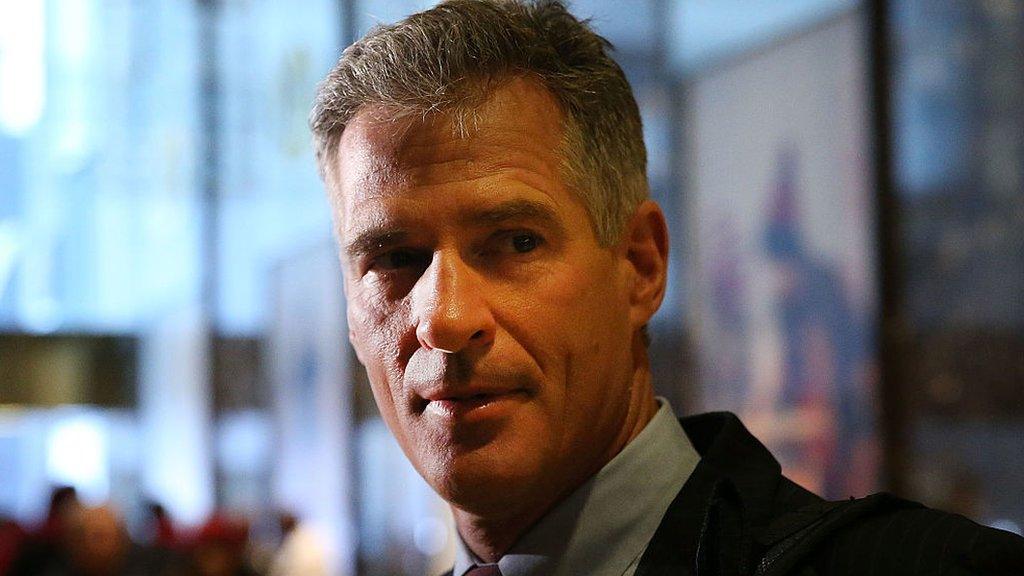
- Published22 December 2017
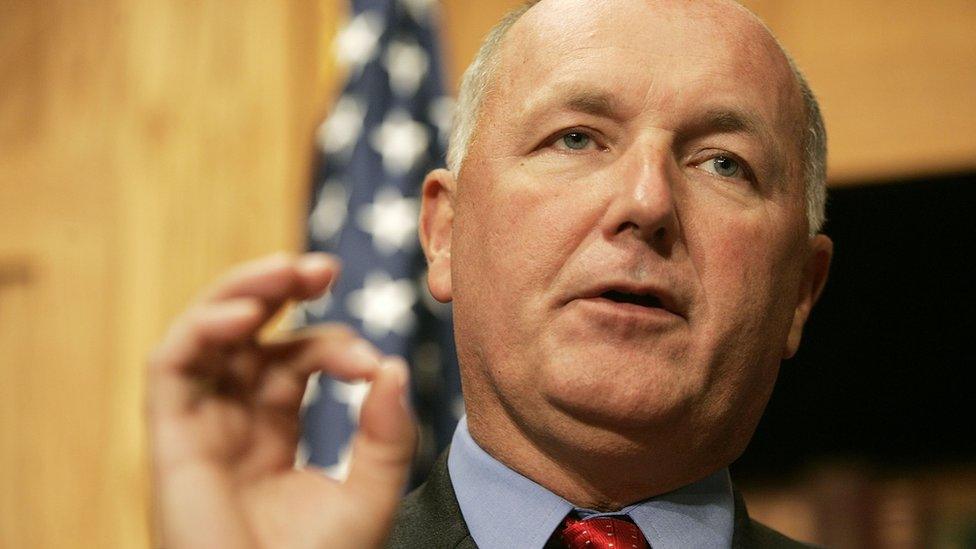
- Published12 January 2018
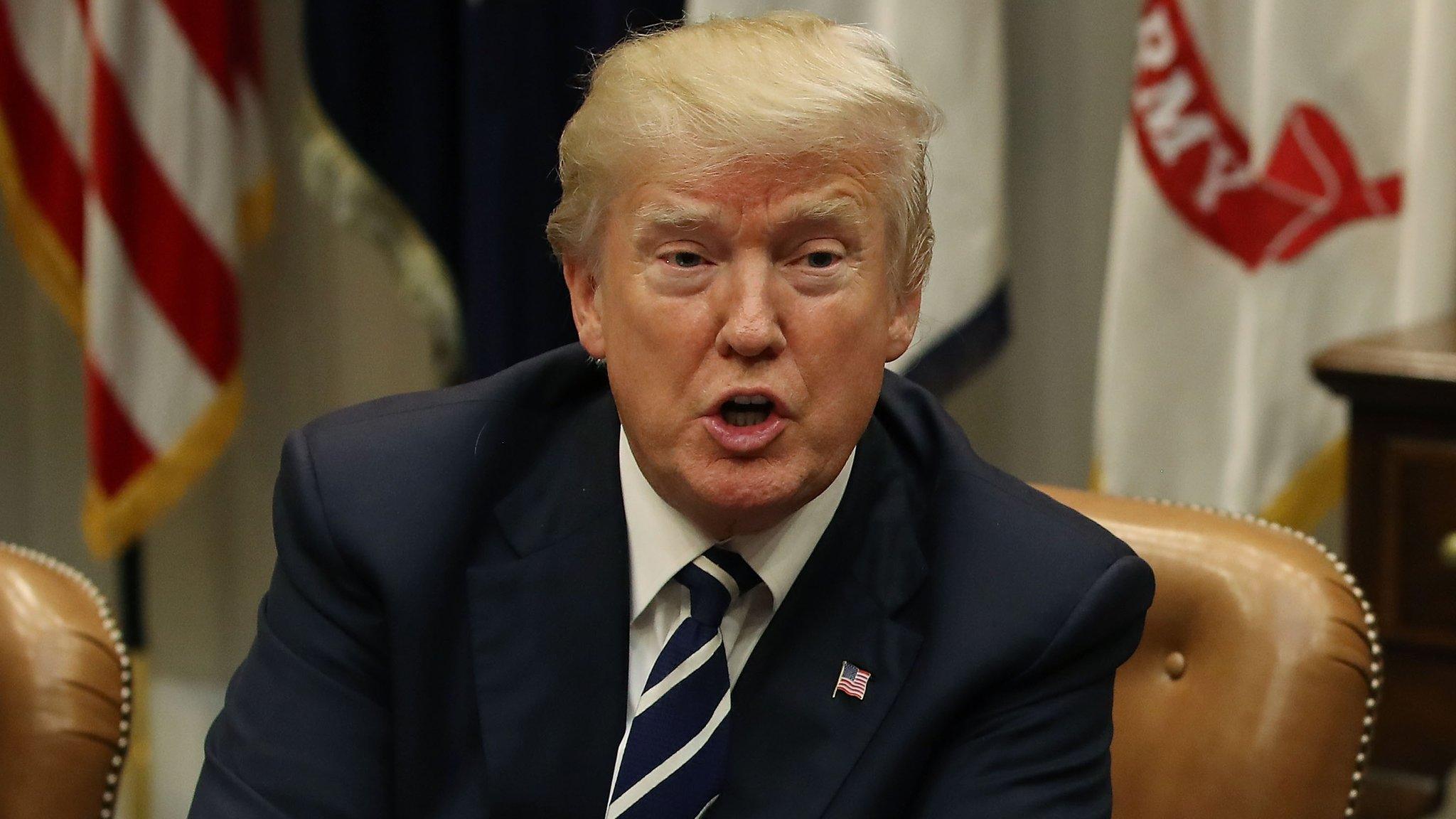
- Published31 August 2016
